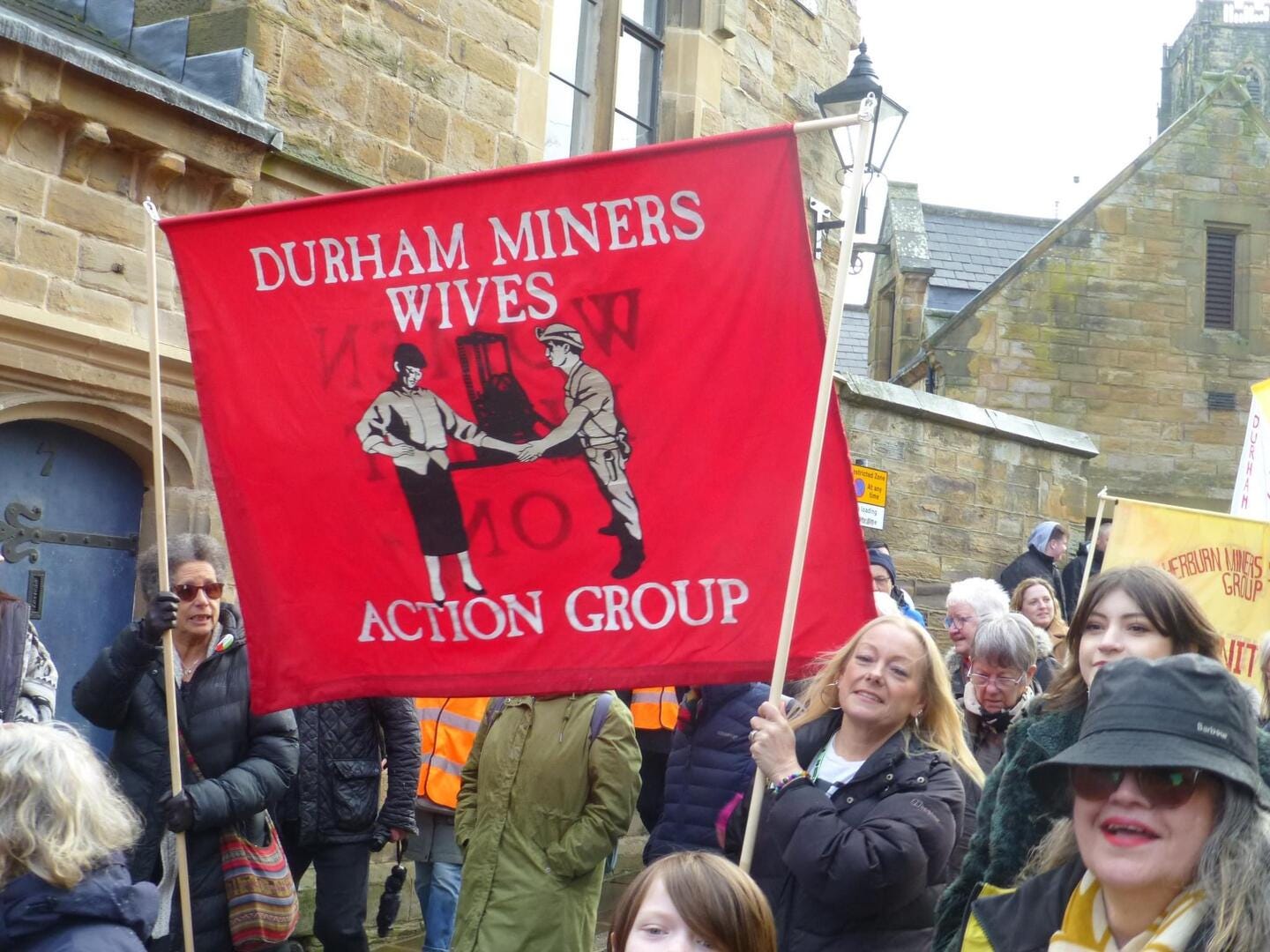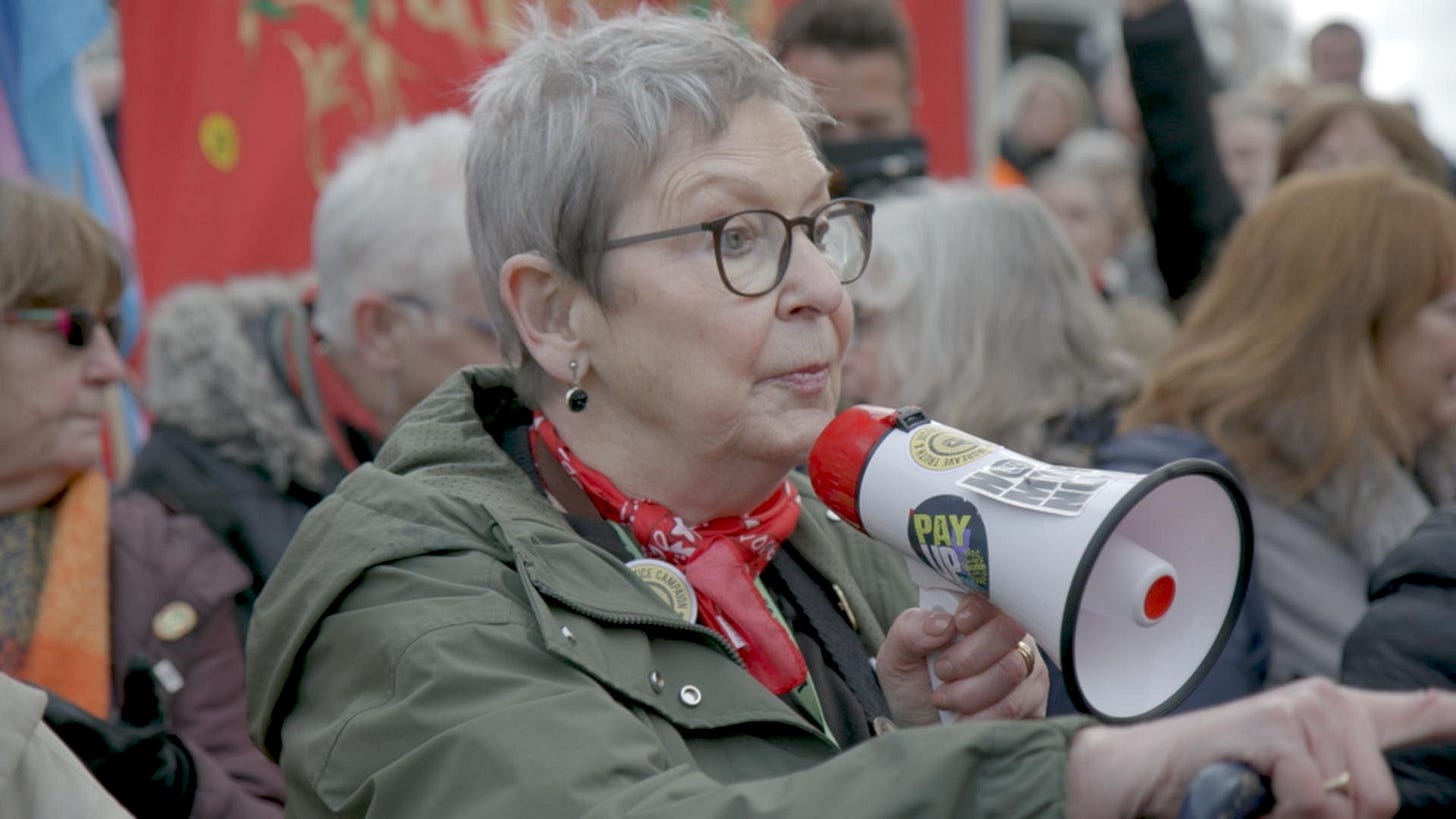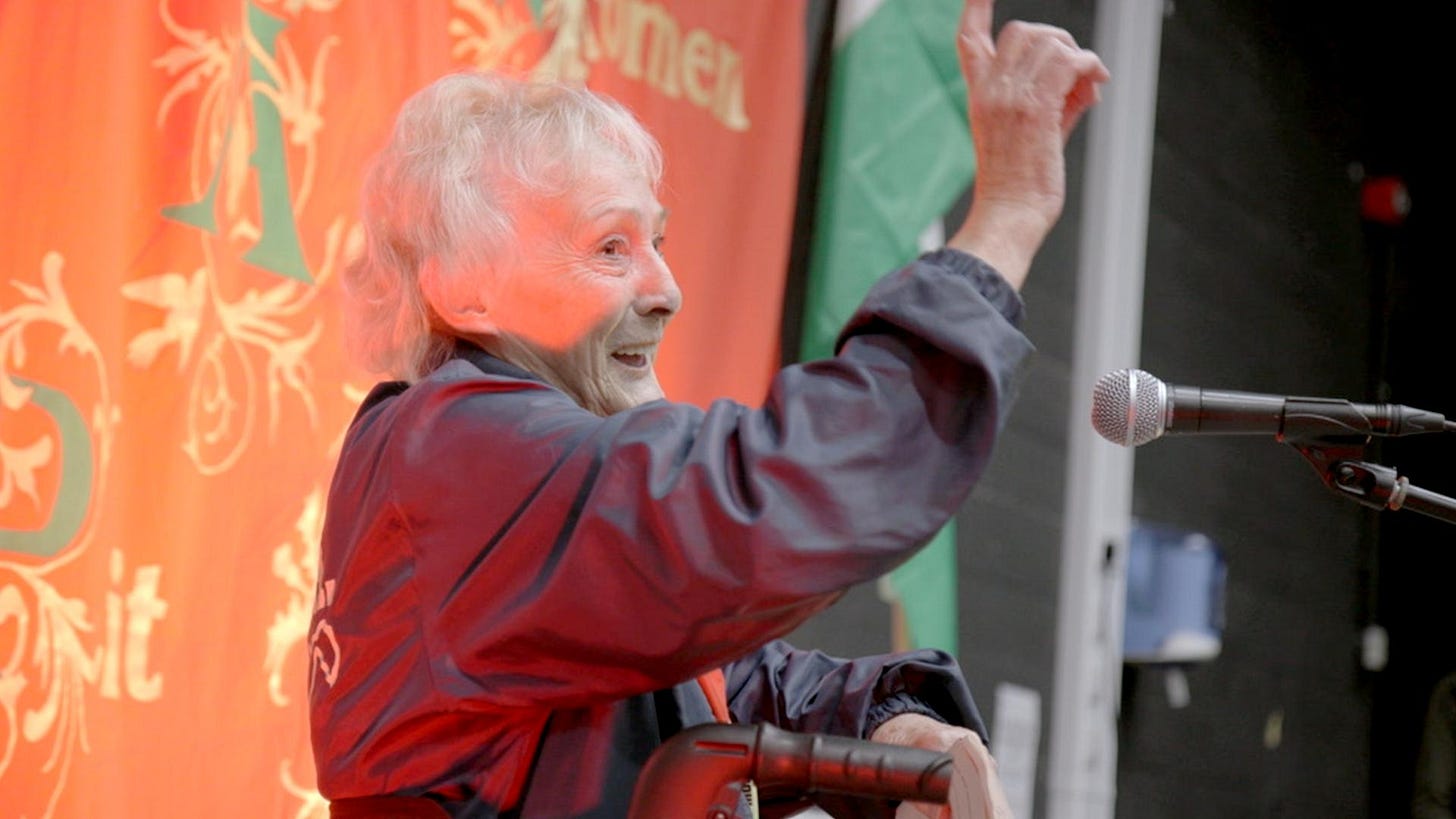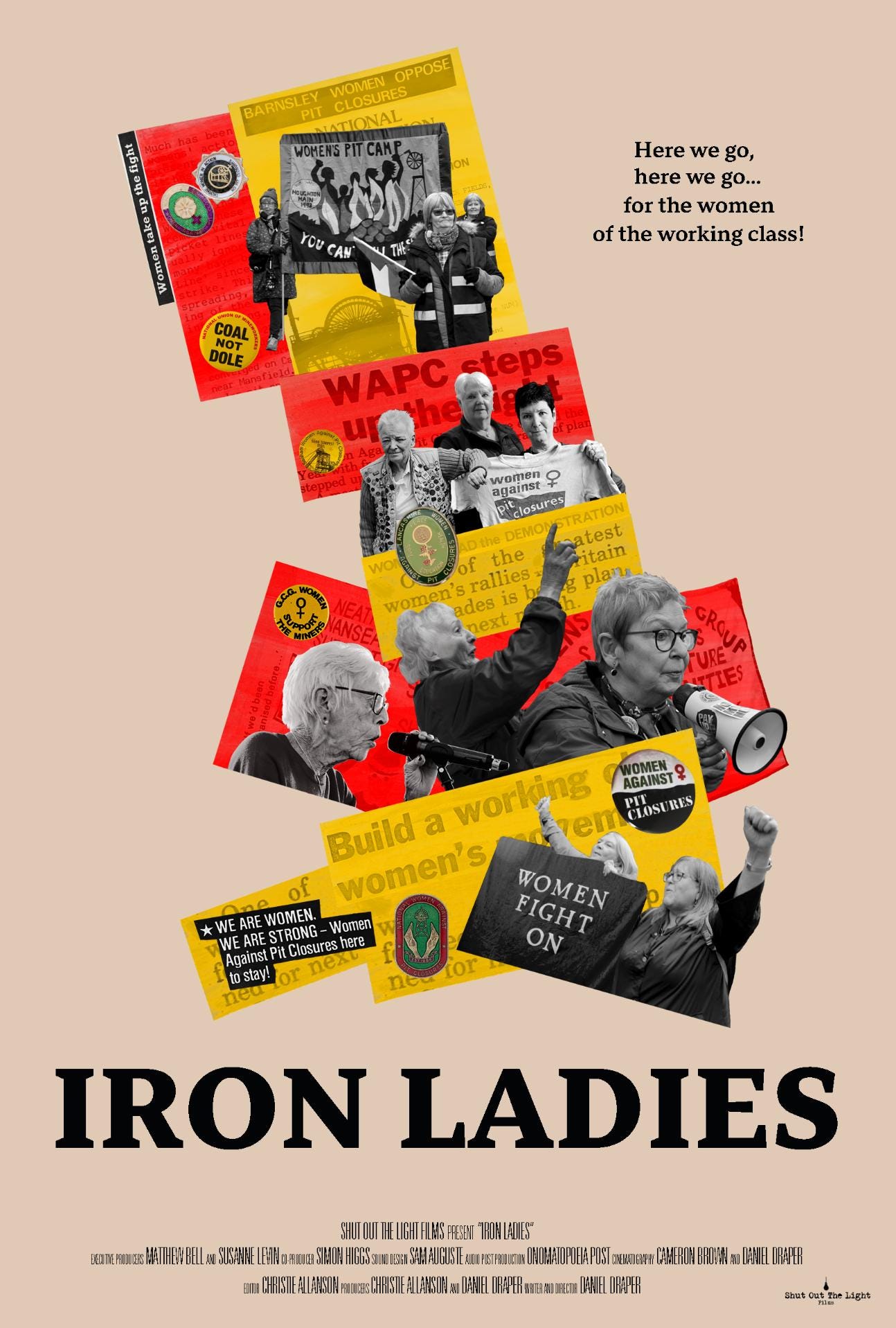Forty years on, Miners’ Strike women celebrated
Miners’ strike women who fought alongside the pitmen are getting recognition on the big screen. Tony Henderson reports
A powerful reminder of the crucial and spirited part played by women in the 1984-85 miners’ strike is hitting the silver screen.
A series of screening of two films about the experiences of those involved in the strike, including the roles and achievements of women during the bitter stoppage, is underway across the region and the wider UK.
At the same time, the legacy of the National Women Against Pit Closures alliance, formed during the strike, will be kept alive by the launch of a successor organisation, National Women’s Action for Positive Change.
A new documentary film, titled Iron Ladies, from independent film and distribution company Shut Out the Light, features women describing their experiences during the strike - from fundraising and running kitchens to supply meals to mining families, to joining the picket lines.
The film is being shown this week across the North East including screenings at the Customs House, South Shields (Oct 14 and 16); the Forum Cinema in Hexham (Oct 14); the Tyneside Cinema (Oct 16) including a post-screening Q&A with County Durham’s Heather Wood, who took a leading part in the struggle; and the Gala Durham (Oct 16).
A full list of regional and national screening dates can be found here.
Shut Out the Light was founded by Christie Allanson and Daniel Draper, who attend the Durham Miners’ Gala each year and made the film The Big Meeting.
They were also filming at the recent major reunion held in Durham by women nationwide to mark the 40th anniversary of the strike.
Christie said: “At that event we decided we wanted to focus on the women who played a massive part during the strike and who deserved recognition.
“The women talk about their experiences and how they were politicised by them.
They were integral in sustaining the strike,” said Christie, producer and editor of the film alongside director Daniel.
“Beyond the strike many of the women went on to be involved in other causes. We hope that the film is a testament to what the women achieved and an inspiration to other women.
“Previously they have been very much a side story, but they did what they did often without help from anybody.”
Heather Wood, who recently wrote a book on her life in the pit community of Easington and helped set up 14 support groups across the Durham coalfield, features in the film.
She said: “There are so many lessons we can learn from the women’s support groups during the strike. We didn’t wait for someone to come along and give us permission to get things done. We just got on with it.
“There were enough of us up and down the country that we were able to stand for a full year - on picket lines, feeding families in the welfare halls and at rallies. We were a force to be reckoned with then, and you know what - we are still here, decades later.
'“But the ultimate lesson from the strike is that together we can achieve great things.”
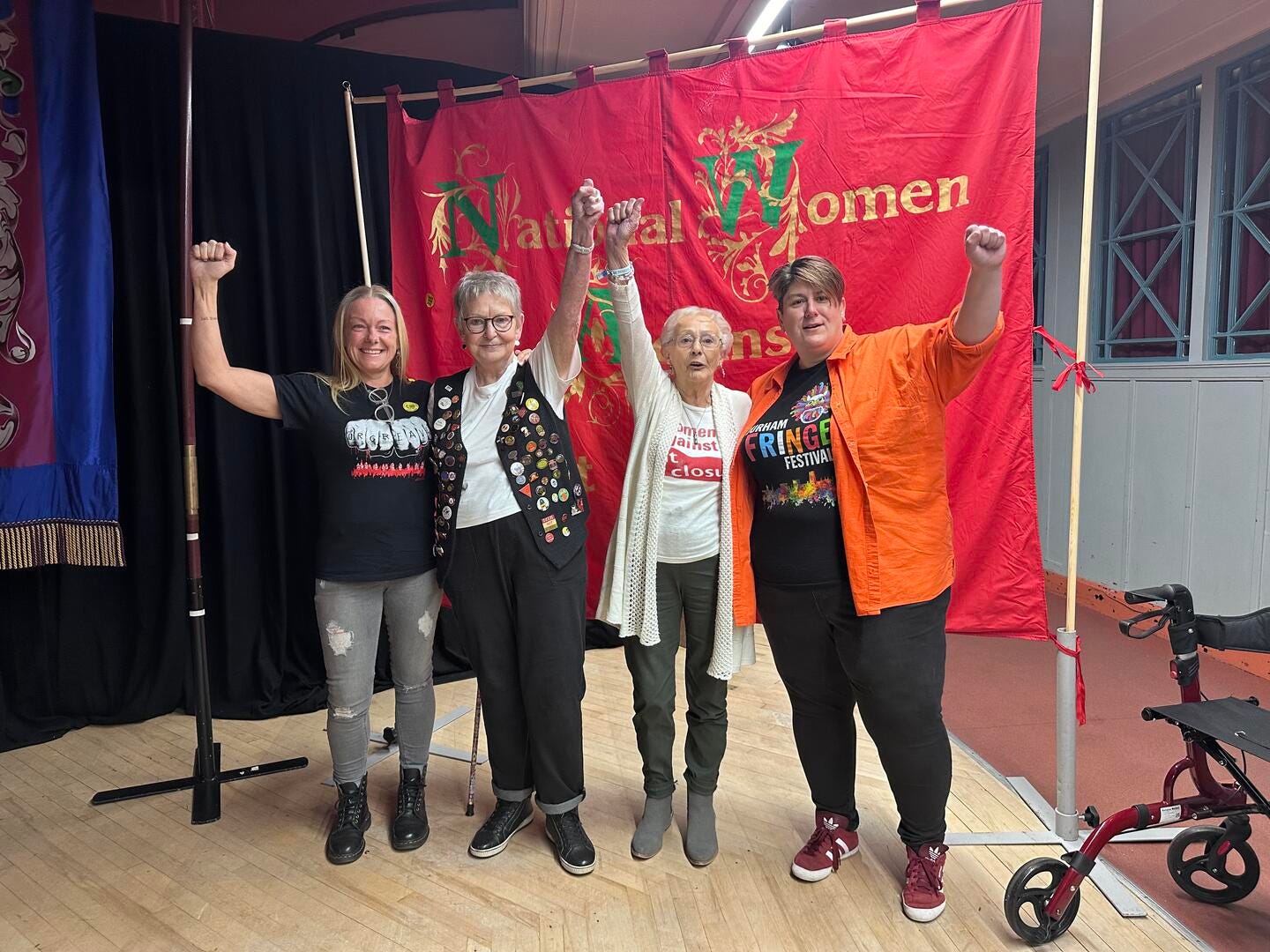
Also in the film is Lynn Gibson, who today manages Durham Energy Institute at Durham University and is secretary of the new Women’s Action for Positive Change.
She said: “The women of National Women Against Pit Closures taught us that solidarity extends far beyond the workplace - it lives in kitchens, community halls and soup kitchens where ordinary women became extraordinary leaders.
“They proved that the most profound social movements are born not from boardrooms or parliaments, but from the fierce determination of those who refuse to let their communities die quietly.
“These iron-willed women showed that fighting for your community’s survival isn’t just about preserving jobs, but about defending the very fabric of working-class life.
“They transformed personal struggles into collective strength, demonstrating that when traditional power structures fail to listen, it’s often those who have been overlooked who find the most creative and powerful ways to resist, organise and build hope in the darkest of times.
“Their legacy reminds us that true leadership often emerges from the most unexpected places.”
Christine Powell also says in the film: “What were we going to do? Tug the forelock and say yes ma’am, or fight? The choice was to fight.”
Beamish Museum will also screen the film Pride in its 1950s cinema on Saturday, October 18.
The museum is working with Durham Pride, Durham Miners’ Association and OUT NE for the special screening of the film, with backing from Point North Community Fund.
The Striking Times exhibition will also be on display in the museum’s STEM Learning Space in the 1950s Town.
Striking Times was created for the 25th anniversary of the strike, based on a project collecting memories from those who experienced the strike, reflecting on their involvement and their feelings 25 years on.
“Beamish is pleased to be working with Durham Pride and Durham Miners’ Association with OUT NE to show Pride in our 1950s cinema, 40 years on from the end of the 1984/85 miners’ strike. This story of solidarity, friendship and communities united in pursuit of social justice still resonates today,” said a museum spokesperson.
The event will be introduced by Peter Darrant, chairman of OUT NE and Stephen Guy, chairman of the Durham Miners’ Association.
Durham Pride chairman Mel Metcalf said: “This special screening of Pride captures the spirit of unity and resilience so integral to our region’s heritage. Working in partnership with the Durham Miners’ Association, we hope to encourage reflection and conversation about the power of solidarity, both past and present.”
The screening will take place in the museum’s recreation of the Grand Cinema, which stood in Ryhope, Sunderland.
The event is free, but tickets must be booked in advance via the Beamish Museum website, and a museum entry ticket is required.
The National Women’s Action for Positive Change (NWAPC) aims to preserve and celebrate four decades of grassroots activism while tackling contemporary challenges facing working communities and encouraging new generations of activists.
Lynn said: “We are a living bridge between the extraordinary women who changed the political landscape in the 1980s and the activists who will shape our future. Our reformation honours those who came before us while ensuring their strategies, stories and spirit of resistance continue to inspire.
“With the new organisation, we want to keep the momentum going, especially involving younger women.”
NWAPC will hold its inaugural national meeting on Tuesday, October 29 at noon via Teams, which will also focus on their first project - commemorating women’s activism during the 1926 General Strike as its centenary nears.
The project aims to uncover and preserve stories of remarkable women like Annie Errington, a Durham miner’s wife who travelled through Russia during the 1926 strike to raise awareness and secure funding for striking families.
“We recognise that arts and culture are powerful tools for activism,” said Heather Wood, former secretary of National Women Against Pit Closures.
“Through creative expression, exhibitions, film and performance, we preserve history whilst inspiring action for contemporary challenges.”


